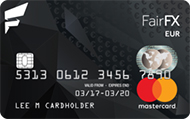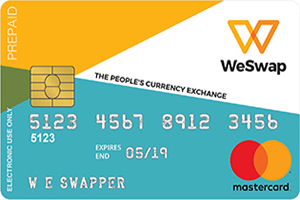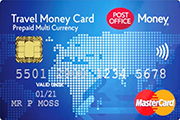What really makes prepaid travel cards worthwhile is how much cheaper they are to use when overseas compared with regular bank cards. To understand why, first you have to understand a little bit about how the charges can add up when you use your regular bank card when you're outside of the UK.
Firstly there's the exchange rate. If you use your UK bank card outside of the UK your bank will convert your British Pounds into the local currency using their daily exchange rate at the time you make the payment. High street banks are notorious for having some of the worst exchange rates because they don't have to be competitive. Your bank will also add on transaction or point-of-sale fees which can be a fixed amount or a percentage of the total transaction value. That's a fee you have to pay your bank every time you use your card or withdraw money when you're away!
So how are prepaid multi-currency cards different? Well most card providers we compare offer far better exchange rates than UK banks which means you'll get a better deal right from the start. As for the transaction fees - prepaid cards offer much lower or even no transaction fees (FX fees) so you only pay what you see and nothing else. You'll have to compare our prepaid cards to see which one is best for you - some charge FX fees but withdrawing money from an ATM is free. Some offer no FX fees but charge for cash withdrawals.

 Free card if you order via Compare Holiday Money
Free card if you order via Compare Holiday Money Lock in great rates before you travel
Lock in great rates before you travel Share travel money with friends and family
Share travel money with friends and family Get 3.5% cashback when you spend in the UK
Get 3.5% cashback when you spend in the UK





